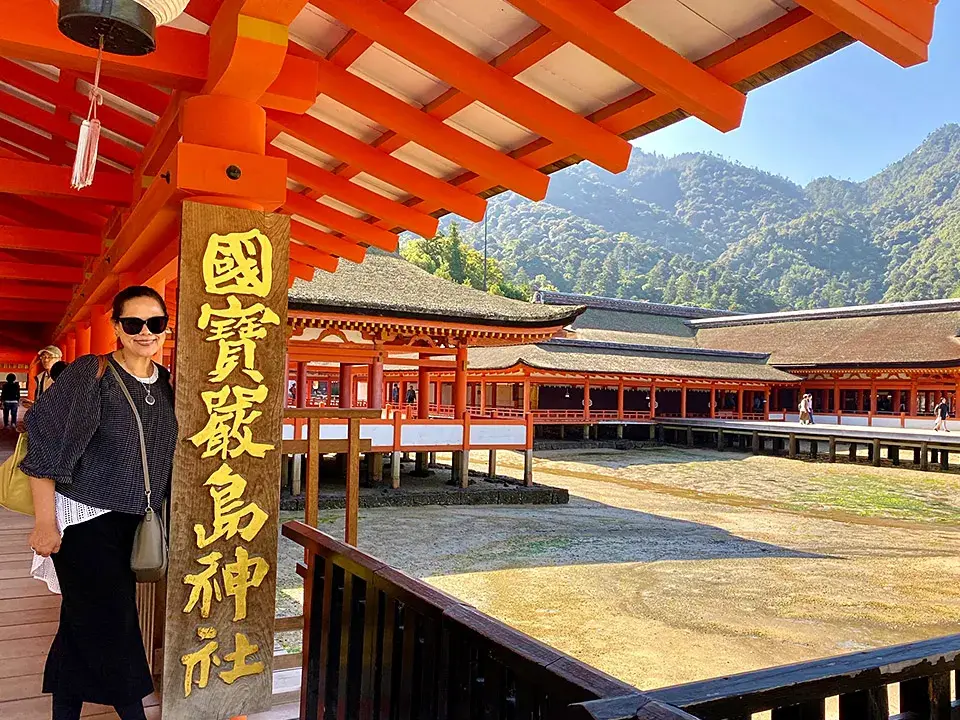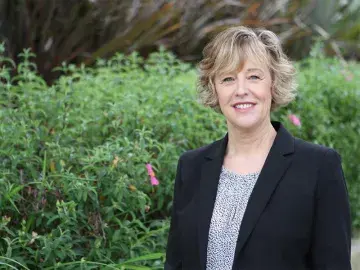Fulbright Winner on a Mission to Boost Organ Donations

Japan has the lowest organ donation rate in the world, putting at risk many of its citizens. Now, SMU’s Joyce Trompeta, BSN ’88, has set out to help change that.
“The Japanese are known for their longevity, but with that comes illnesses like kidney disease. Transplantation would be the best way to increase their quality of life,” Trompeta says, noting that Japanese citizens with chronic kidney disease spend an average of 25 to 30 years on dialysis —a big problem for a country that has seen its over-65 population quadruple during the past 40 years.
Trompeta compares current attitudes in Japan about organ donation to the U.S. 30 years ago—when, she says, it was rarely discussed. “The Japanese don’t even talk about it,” she says. “There are a lot of myths and taboos around organ donation.”
Why Japanese avoid organ donation
To shed light on why that is, Trompeta, the recipient of a Fulbright U.S. Scholar grant, will spend the next year exploring in-depth the attitudes, beliefs, and knowledge surrounding organ donations and transplants among Japanese citizens. By better understanding Japanese citizens’ reasons for avoiding organ donation, Trompeta hopes to empower health care professionals, elected leaders, and young people to change the culture.
“It’s something I have a passion for because transplants are a gift of life,” says Trompeta, now an assistant professor at UCSF’s Department of Surgery, where she researches factors related to organ donation and health disparities among underserved populations.
Trompeta, who was recently honored for her work when she was inducted into the prestigious American Academy of Nursing, has already developed successful outreach programs in Hawaii that promote organ transplants and donor awareness, including creating clinics for lung, kidney, and pancreas transplants.
Similar to her work in Hawaii, Trompeta plans to study and compare the differences and similarities between younger and older, and urban and rural citizens in Japan when it comes to organ donation.
When she earned her nursing cape
Trompeta was a member of the last SMU class to graduate with a nursing diploma in 1983, when the school was still a hospital-based college. She returned to SMU to earn a bachelor of science in nursing degree in 1988, as part of a joint program with Saint Mary's College.
She has fond memories of living in Samuel Merritt’s Bechtel Hall, a five-story brick dormitory formerly located on Oakland’s Pill Hill that she says was like a sorority house with private rooms, housekeeping service, and meals provided for free in the hospital cafeteria as part of the tuition. She appreciated traditions like having big sisters assigned to watch out for younger students, a candle-passing ritual when a classmate became engaged, and a capping ceremony at the end of the first semester when students received SMU nursing caps and wool nursing capes.
"I remember Joyce as a quiet, serious student who was a joy to work with,” says Professor Emeritus Abby Heydman, who previously served as dean of nursing, academic vice president, and interim president at SMU.
Help for kids who need transplants
After graduating with her BSN degree, Trompeta worked for five years in the pediatric intensive care unit at Children’s Hospital in Oakland. Later, she tried working as a medical-legal consultant but didn’t find it rewarding or challenging. She considered law school but instead took a position overseeing the pediatric kidney transplant program at UCSF Medical Center, where she also prepared international patients, primarily from Japan, for transplants.
“I didn’t know about transplantation when I took the job, but I did know pediatrics,” she says. During her 25 years at UCSF, she earned her master’s and doctoral degrees in nursing and developed an enduring commitment to boosting organ donation rates.
Now she sees an opportunity to accomplish that in Japan by encouraging conversations in families, driven by young people, and by educating health care providers who are on the front lines of obtaining consent for living and deceased organ donations.
“Joyce is doing very important work on changing cultural inhibitions that prevent organ donations, which are so needed for patients with acute and chronic organ failure,” Heydman says.


